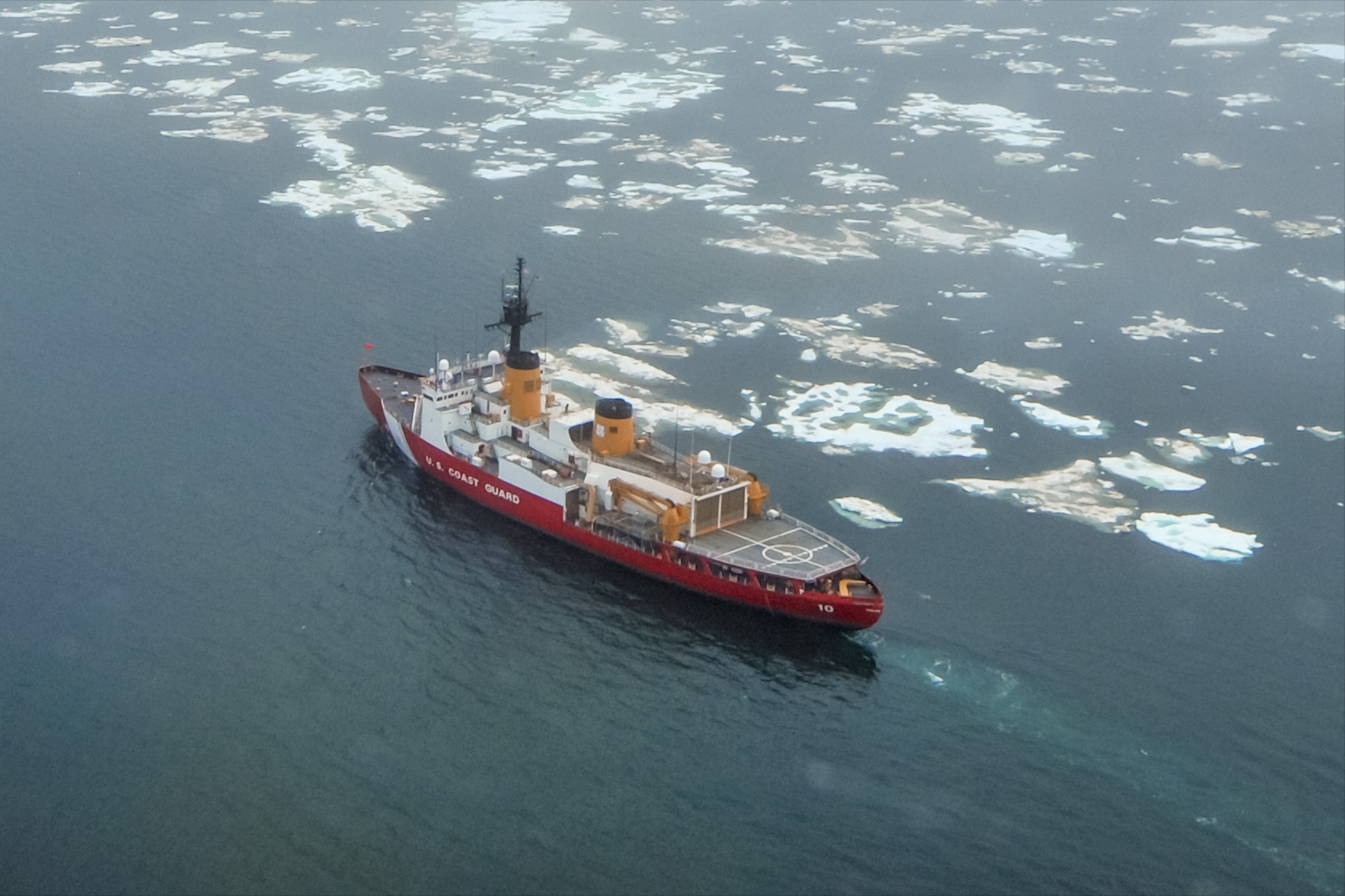The U.S. heavy-duty Coast Guard icebreaker Polar Star will make a winter voyage to Arctic Alaska
The ship usually sails to Antarctica, but with that mission canceled, it's freed up for an Arctic voyage.

The U.S. Coast Guard icebreaker that normally sails to the Antarctic will be headed north to Alaska waters this year, the admiral overseeing Alaska operations announced on Friday.
The Polar Star, the Coast Guard’s only heavy-duty icebreaker, is expected to arrive in the Bering Strait region in mid-December, Rear Admiral Matthew Bell said in a presentation to the Alaska Federation of Natives annual convention, which was conducted online this year.
“They’ll patrol through the Beaufort and Chukchi seas through the middle of February before they return home to Seattle,” said Bell, commander of the Coast Guard’s Alaska district.
The Polar Star’s usual Antarctic rotation, where it resupplies the McMurdo Research Station during the Antarctic’s summer, is canceled in this pandemic year, said Senior Chief Petty Officer Nyx Cangemi, a spokesman for the Coast Guard’s Pacific operations.
That frees the ship to come to sail in Alaska, he said.
With ability to break through ice that is up to 21 feet thick, the Polar Star will be able to handle winter ice in the Chukchi and Beaufort, Cangemi said.
That is the territory where the Coast Guard icebreaker Healy usually sails — but its Alaska operations are conducted in summer and fall, when the sea ice is low.
“The Polar Star is a much more capable icebreaker,” Cangemi said. “It’s older, but it’s capable of powering through thicker, older ice.”
The Polar Star was commissioned in 1976; the Healy was commissioned in 1999 and is designed to break through ice 4.5 feet thick, according to the Coast Guard.
The Polar Star’s exact mission in Alaska waters this winter has yet to be determined, Cangemi said. There are hopes that the ship will be able to support some of the scientific research that would have been done this year from the Healy but was not carried out because of mechanical problems, he said.
When it sails in Alaska, the Healy usually carries a small army of scientists conducting Arctic research. But this year, even before the Healy left its Seattle homeport, the coronavirus pandemic forced that research program to be slimmed down, as many of the scientists were forced to stay at home.
Some scientists did board the icebreaker in August in preparation for their at-sea work. But an engine fire that month forced the Coast Guard to shut down the Healy’s research voyage, leaving a “significant amount” of scientific work undone, Cangemi said.
The Healy is now in Seattle awaiting delivery of a replacement propulsion motor that is being shipped from Baltimore, he said.
For the Polar Star, Arctic science support is not new. In the early to mid-2000s, for example, the icebreaker served as a platform for research in the Chukchi and Beaufort.
After that, the Polar Star was later sidelined for several years in Seattle, where it received a major upgrade before being deployed for Antarctic missions.
When it is sailing the Bering, Chukchi and Beaufort, the Polar Star will be available to conduct search-and-rescue missions as needed, Cangemi said. “All of our crews are trained in search and rescue,” he said.
Even with the Healy in Seattle awaiting repairs, the Coast Guard’s 2020 Arctic and Bering Sea work continues.
The helicopter crews stationed in Kotzebue for this year’s Arctic program remain on duty through the end of October, Bell said in his AFN presentation.
Those Coast Guard crews were involved Friday in a search-and-rescue mission in Nome. There, three men fell into the water when their gold-dredging vessel capsized late Thursday, according to the Alaska State Troopers. As of late Friday, one of the men had made it ashore but the other two remained missing, the troopers said.
The Coast Guard cutter Alex Haley was sailing the Bering Sea, patrolling the waters and helping to ensure the safety of the crabbing fleet working this time of the year mostly near St. Paul Island, Bell said in his AFN presentation.